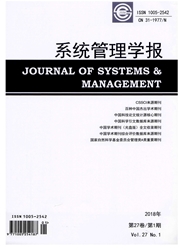

 中文摘要:
中文摘要:
在大型工程项目的子项目或工序中,重要设备的优化调度对提高设备的利用率,确保项目按期完工具有重要作用。将大型项目设备调度问题(ESPLP)归结为任务需求可拆分、带有时间窗的车辆路径问题(SDVRPTW)。根据项目设备调度过程中的约束建立了项目设备调度模型,并分析了ESPLP最优调度方案所具备的性质特征与SDVRPTW问题的区别,针对模型特点提出了远缘杂交遗传算法(DCGA)。基于国内某大型建筑项目实际案例为测试对象,分别将DCGA的求解结果与项目现实调度数据进行了对比,并比较了DCGA与现有算法的性能,比较结果表明了本文模型与算法的有效性。
 英文摘要:
英文摘要:
During the execution of activities which require and share reusable key equipment in large engineering project,the scheduling of key equipment is vital to improve equipment utilization and guarantee the on-time completion of the entire project.In this paper,we transform the equipment-scheduling problems on large-scale project(ESPLP)to split-delivery vehicle routing problem with Time Windows(SDVRPTW).Using the precedence constraints among activities,we build a mathematical model and analyze its complexity,and propose a novel distant-cross genetic algorithm(DCGA)to solve the model.We then conduct the computational study with data collected from a real construction project in China.We compare the result of DCGA and the schedule generated manually in practice,and benchmark the performance of DCGA against existing algorithms.The results demonstrate the effectiveness of our model and algorithm.
 同期刊论文项目
同期刊论文项目
 同项目期刊论文
同项目期刊论文
 期刊信息
期刊信息
